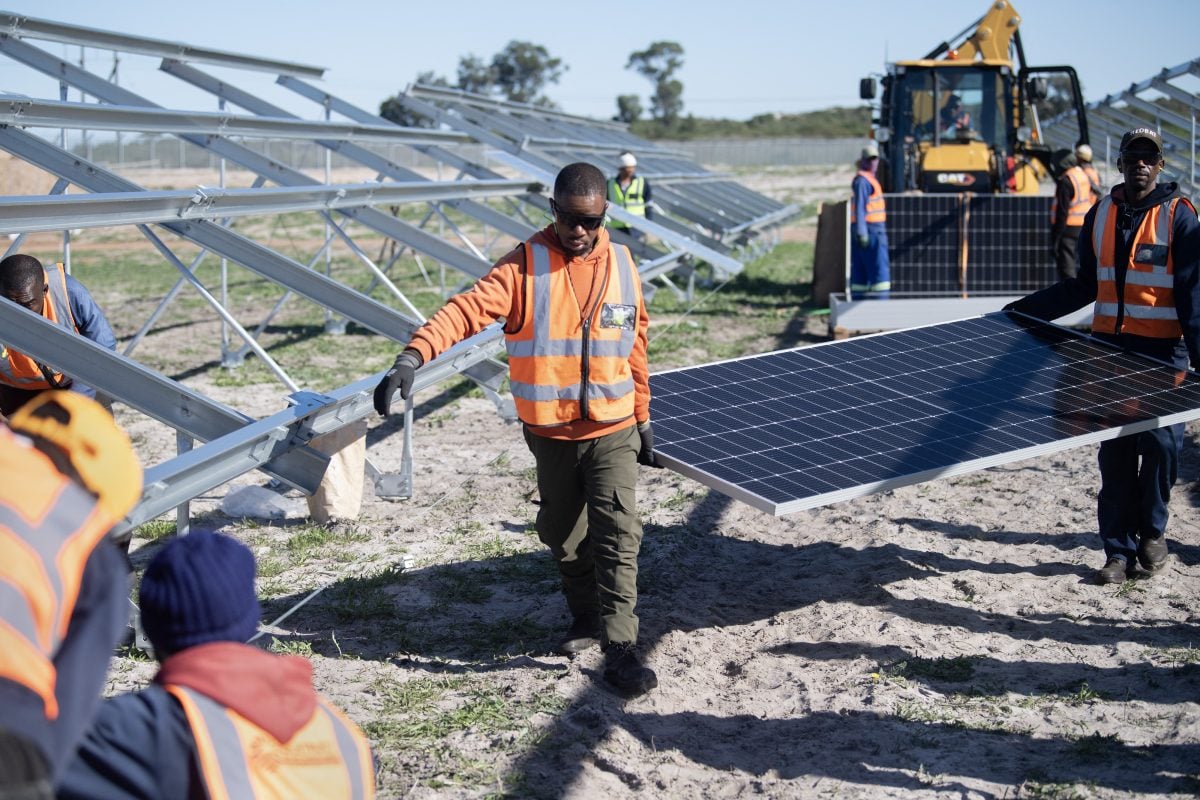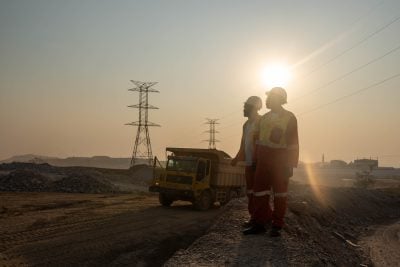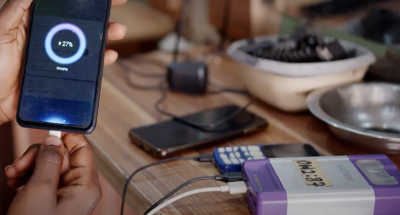Walk through the streets of Johannesburg, Lagos, or Kinshasa, and the story is the same: the ambitions of people, aged or young, are stifled by a lack of consistent power. With over 60% of our region’s population under 25 and unemployment at record highs, Africa urgently needs a long-lasting antidote to populations living without access to power or light. Stabilising its electricity supply will secure human dignity, safety, and economic opportunity. Millions still live without reliable power, which is needed to cook, learn, earn, or travel when it’s dark. In other regions of the world, energy access is considered a fundamental human right, afforded to all, and serves as the foundation for prosperity.
The global climate finance system has the potential to coordinate action for urgent and clean energy access, but it continues to fall short. Despite bold rhetoric and pledges, Africa still receives only 3% of global climate finance. The African Development Bank estimates the continent will need more than $200bn annually for climate-related investments by 2030, but current flows remain slow, fragmented, and weighed down by high transaction costs.
Private investors remain cautious, citing impenetrable pipelines and policy uncertainty. Public funds, while critical, are often locked into disconnected donor-led projects that lack long-term national alignment.
To bridge this growing gap, country platforms offer a credible new solution, aligning national priorities with investor appetite. Country platforms can unlock the scale of private capital needed for Africa’s climate-resilient development.
What are country platforms?
Country platforms are government-led, nationally owned investment frameworks designed to align public and private capital with a country’s climate and development priorities. They help governments define clear strategies, coordinate across ministries and with development partners, and build reliable pipelines of investable projects. With the right structure, country platforms can improve policy coherence, reduce duplication, and lower the cost of capital by boosting investor confidence. Crucially, they can unlock private finance and pool domestic capital at scale by matching climate finance with national delivery plans.
For too long, Africa’s climate finance has been fragmented. As economist Carlos Lopes argues in his new book, The Self-Deception Trap, donors often fall into a ‘self-deception’ trap, thinking billions of aid commitments alone can drive transformation, while governments are left with limited control over outcomes. Country platforms aim to change this. When governments set the agenda and are equipped with the right tools, data, and partnerships, these platforms can steer both concessional and commercial capital into climate-smart investment in sectors like energy, agriculture and manufacturing.
Only as strong as the institutions behind them
Several African countries are experimenting with pilot country platforms. Early examples like South Africa’s Just Energy Transition Partnership and Egypt’s NWFE platform offer valuable models to build on. While these initiatives show what is possible for energy access, one key learning is that country platforms are not one-size-fits-all, and must be anchored in the political economy and institutional capacity of each country.
At their best, country platforms put African governments in the driving seat of development. This is the premise behind Mission 300, which has enabled twelve countries to adopt National Energy Compacts (NEC) to connect 300 million people to electricity by 2030. To operationalise these commitments, GEAPP is supporting Compact Delivery and Monitoring Units (CDMUs), dedicated teams embedded within government to break silos, strengthen institutional capacity, and build a delivery-focused public sector.
Rather than outsource reform to external agents, CDMUs place delivery capacity inside African governments. They align ministries, create investment-ready project pipelines, and ensure that public and private actors move in the same direction. These units are laying the groundwork for sustained investment and inclusive energy transitions. A second cohort of 20 African countries is expected to adopt the NECs and operationalise CDMUs by the end of 2025.
Driving climate finance
To unlock climate finance at scale, country platforms must be anchored in strong government leadership and clear national strategies that connect energy, jobs, and infrastructure goals. When embedded in political leadership, platforms give private investors the clarity and policy alignment they need to commit capital confidently.
They also offer a concrete delivery channel for global ambitions. The Financing for Development Conference, through the Sevilla Commitment, has called for the enhancement of MDB lending to support country-led development. Country platforms provide a mechanism to channel this capital into coherent national plans, translating global finance into locally owned, investable pathways.
Crucially, platforms can crowd in private investment and pool domestic capital by lowering transaction costs, demonstrating bankable pipelines, and creating a track record of reform. More than a portfolio of projects, a platform is a signal to the market that a country is investable. As one panellist said at a recent Africa Policy Research Institute (APRI) peer exchange in Abuja: “The real test is whether a platform makes an investor in Toronto or Zurich look up and take notice.”
GEAPP’s alliance model is helping deliver this shift. In South Africa, Nigeria and Malawi, GEAPP supports the JETP, the National Energy Transition Office, and the Integrated Resources Plan (IRP), respectively. These are helping governments implement energy access agendas, providing technical support, and crowding in private capital at scale.
Country platforms offer a real chance to move from rhetoric to results. Above all, they allow African governments to own their development pathway on their terms. As the world debates how to reform the global financial architecture for development, the answer may not lie in a new pledge or institution, but in backing the tools African countries are already building to deliver for their people.
Want to continue reading? Subscribe today.
You've read all your free articles for this month! Subscribe now to enjoy full access to our content.
Digital Monthly
£8.00 / month
Receive full unlimited access to our articles, opinions, podcasts and more.
Digital Yearly
£70.00 / year
Our best value offer - save £26 and gain access to all of our digital content for an entire year!
 Sign in with Google
Sign in with Google 



